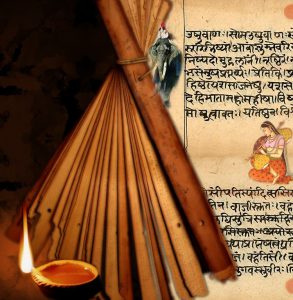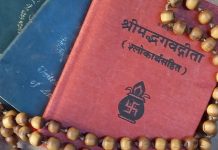 One of my friends said, “Look at the rich technical vocabulary of English. Isnt it amazing that today we have so many new words created in English like Computer, Processor, Monitor, Internet, Hardware, Software etc that it is almost impossible to create words with similar meaning in other languages and so instead we will have to directly import these english words into our languages to keep pace with the rapidly evolving new terms.”
One of my friends said, “Look at the rich technical vocabulary of English. Isnt it amazing that today we have so many new words created in English like Computer, Processor, Monitor, Internet, Hardware, Software etc that it is almost impossible to create words with similar meaning in other languages and so instead we will have to directly import these english words into our languages to keep pace with the rapidly evolving new terms.”
“Very True.”, I said, “Any language during the time period of its peak usage as a spoken language will have its words imported into other languages that exist during that period. Just like the way Sanskrit words which got imported into Greek, Latin, Persian, etc during the peak usage of Sanskrit. These Sanskrit words have today silently formed a vast majority of the Original English Language!”.
And then I explained to him the Sanskrit source of various English words and he was quite surprised – not because he didnt knew it all these days, but because he had failed to recognize the obvious phoenetic connection that existed between words in his Indian language (which is again derived from Sanskrit) and similar sounding words with similar meaning in English!
So I thought I better pen down a list of all such English words derived indirectly from the ancient Sanskrit.
But before that, as usual a small preface
The World’s Oldest Known Literary work – the Vedas – the root source of the Indian and Hindu Philosophy and Spirituality – are written in Sanskrit.
“The Sanskrit language, whatever be its antiquity, is of wonderful structure; more perfect than the Greek, more copious than the Latin, and more exquisitely refined than either, yet bearing to both of them a stronger affinity, both in the roots of verbs and in the forms of grammar, than could not possibly have been produced by accident; so strong indeed, that no philologer could examine them all three, without believing them to have sprung from some common source which, perhaps, no longer exists; there is a similar reason, though not quite so forcible, for supposing that both the Gothick and the Celtick, though blended with a very different idiom, had the same origin with the Sanskrit; and the old Persian might be added to the same family”
So said Sir William Jones – the English Philologist who for the first time in 1786 suggested in his book “The Sanscrit Language” that Greek and Latin were related to Sanskrit and perhaps even Gothic, Celtic and Persian languages were related to Sanskrit.
It was this work which later gave birth to the so called Proto-Indo-European theory which instead of looking into Sanskrit being the root language of all Indo-European languages, suggests that all Indo-European languages including Sanskrit came from another so far unheard of language called PIE or Proto-Indo-European language.
Well, the irony is that till today there is no literature in the world about the so called PIE. There is no inscription found anywhere in the world written in the so called PIE. Nobody knows how the PIE was. Nobody knows who spoke it or in which part of the world was it spoken. No known ancient culture in the world talks about such a language being the root of the language they spoke. Simply put there is NO PROOF about the existence of this language. Just look at its name. It was a name GIVEN to it. A language if spoken will definitely contain words referring to everything that the people who spoke it could identify, yet here is a language which doesnt even have a name referring to itself!
So then what is the basis of having introduced this language in the language tree in the first place – a language which will remain invisible forever? Might be a guess, Max Muller used to guess a lot like this about the vedas, which he then retreated later.
Be it Greek Latin English Hindi Lithuanian – Sanskrit is the mother of all Languages. Even Scholars like Voltaire, Immanuel Kant etc believed that Sanskrit was the root of all Indo-European languages.
“I am convinced that everything has come down to us from the banks of the Ganges” said Voltaire. He believed that the “Dynasty of Brahmins taught the rest of the world”.
“Mankind together with all science must have originated on the roof of the world ie the Himalayas” declared Immanuel Kant.
About PIE – No idea, they are all linguistic experts who created this language, Oops, I mean its existence – for the language itself is not known yet. I am not an expert to speak on PIE, might be those who speak about it are experts in this language
All I do is present below a list of English words which are derived from Latin/Greek/Persian which are in turn derived from Sanskrit. Indians will be quick enough to recognize these words in their own language since most Indian languages have also originated from Sanskrit and even the other languages have a great deal of Sanskrit influence on them.
And here goes the list of English words derived from Sanskrit.
NOTE: Just to make it clear the below list does not contain Sanskrit words that have been directly borrowed into English in recent times like Karma, Avatar, Mantra, Guru, Cheetah, Pundit, Juggernaut, Nirvana, Lakh etc but lists only those English words which were derived from Sanskrit as English evolved by borrowing words from Greek/Latin etc.
Mainstream English words with Sanskrit Roots
Prati Shat (meaning for every hundred i.e percent)per centum (L)percent
Root Sanskrit Word Median Word in Latin(L) / Greek(G) / Arabic(A) Derived English Word
Gau (meaning Cow) Bous (G) Cow
Matr (meaning Mother) Mater (L) Mother
Jan (meaning Generation) Genea (G) Gene
Aksha (meaning Axis) Axon (G) Axis
Navagatha (meaning Navigation) Navigationem (L) Navigation
Sarpa (meaning Snake) Serpentem (L) Serpent
Naas (means Nose) Nasus (L) Nose
Anamika (means Anonymous) Anonymos (G) Anonymous
Naama (means Name) Nomen (L) Name
Manu (means First Human) ?? Man/Men/Human
Ashta (meaning Eight) Octo (L) Eight
Barbara (meaning Foreign) Barbaria (L) Barbarian
Dhama (meaning House) Domus (L) Domicile
Danta (meaning Teeth) Dentis (L) Dental
Dwar (meaning Door) Doru Door
Dasha (meaning Ten) Deca (G) Deca
Madhyam (meaning Medium) Medium (L) Medium
Kaal (meaning Time) Kalendae (L) Calendar
Kri (meaning To Do) Creatus (L) Create
Mishra (meaning Mix) Mixtus (L) Mix
Ma (meaning Me/My) Me (L) Me
Pithr (meaning Father) Pater (L) Father
Bhrathr (meaning Brother) Phrater (G) Brother
Loka (meaning Place) Locus (L) Locale
Maha (meaning Great) Magnus (L) Mega
Mala (meaning Dirt/Bad) Malus (L) Mal as in Malicious, Malnutrition, Malformed etc
Makshikaa (meaning Bee) Musca (L) (Meaning Fly) Mosquito
Mrta (meaning Dead) Mortis (L) Murder
Na (meaning No) Ne No
Nakta (meaning Night) Nocturnalis (L) Nocturnal
Paad (meaning Foot) Pedis (L) Ped as in Pedestrial, Pedal etc
Pancha (meaning Five) Pente (G) Penta, Five
Parah (meaning Remote) Pera (G) Far
Patha (meaning Path) Pathes (G) Path
Raja / Raya (meaning King) Regalis (L) Royal
Sama (meaning Similar) Similis (L) Similar
Sapta (meaning Seven) Septum (L) Seven
Sharkara (meaning Sugar) Succarum Sugar / Sucrose
Smi (meaning Smile) Smilen (L) Smile
SthaH (meaning Situated) Stare (L) (meaning To Stand) Stay
Svaad (meaning Tasty) Suavis (L) Sweet
Tha (meaning That) Talis (L) That
Tva (meaning Thee) Dih Thee
Vachas (meaning Speech) Vocem (L) Voice
Vahaami (meaning Carry) Vehere (meaning to Carry) (L) Vehicle
Vama / Vamati (meaning Vomit) Vomere (L) Vomit
Vastr (meaning Cloth) Vestire (L) Vest
Yauvana (meaning Youth) Juvenilis (L) Juvenile
Narangi (meaning Orange) Naranj Orange
Pippali (meaning Pepper) Piperi (G) Pepper
Chandana (meaning Sandalwood) Santalon (G) Sandalwood
Chandra (meaning Moon) Candela (L) (meaning light / torch) Candle
Chatur (meaning Four) Quartus (L) Quarter
Shunya (meaning Zero) Cipher (A) Zero
a (prefix meaning “not” ex: gochara – agochara) a (L)(G) (prefix meaning “not”) a (prefix meaning “not” ex: theiest-atheist
an (prefix meaning “not” ex: avashya – anavashya) un (L)(G) (prefix meaning “not”) un (prefix meaning “not” ex: do-undo
Arjuna (meaning Charm of Silver) Argentinum (L) Argentinum – Scientific Name of Silver
Nava (meaning New) Novus (L) Nova – New
Kafa (meaning Mucus) Coughen Cough
Mithya (meaning Lie) Mythos (G) Myth
Thri (meaning Three) Treis (G) Three
Mush (meaning Mouse) Mus (L) Mouse
Maragadum (meaning Emerald) Smaragdus (L) Emerald
Ghritam (meaning Ghee) ?? Ghee
Srgalah (meaning Jackal) Shagal (Persian) Jackal
Nila (meaning Dark Blue) Nilak (Persian) Lilac
Srgalah Shagal (Persian) Jackal
Man (Ma as in Malaysia) (meaning Mind) Mens (L) Mind
Upalah (meaning Precious Stone) Opalus (L) Opal
Vrihis (meaning Rice) Oriza (L) Rice
Upalah (meaning Precious Stone) Opalus (L) Opal
Barbar (meaning stammering) Barbaros (G) Barbarian
Jaanu (meaning knee) Genu (L) Knee
Sunu (meaning Son or Offspring) Sunu (German) Son
Ghas (meaning eat) Grasa (German) Grass
Samiti (meaning Committee) committere (L) Committee
Sama (meaning Same) Samaz (Proto Germanic) Same
Lubh (meaning Desire) Lubo (Latin and Proto Germanic) Love
Agni (meaning Fire) Ignis (L) Ignite
Hrt (meaning Heart) Herto (Proto Germanic) Heart
Yaana (meaning journey, wagon) Wagen (German) Van, Wagon
Nara (meaning Nerve) Nervus (L) Nerve, Nervous
They (th pronounced as in thunder, meaning they) Dei (Germanic) They
Prati per (L) per
Prati Shat (meaning for every hundred, i.e percent) per centum (L) percent










